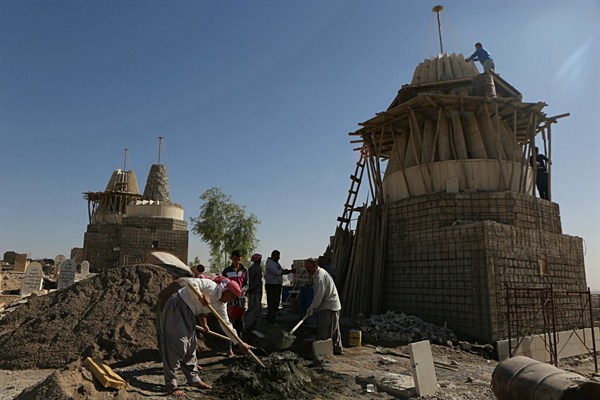Late last month, in an unexpected political maneuver after Iraqi Kurdish officials went ahead with their controversial referendum on independence, Iraq’s central government restored its dominance over most of the so-called disputed territories in the north of the country. Even though they fall outside the jurisdiction of the semiautonomous Kurdistan Regional Government, these areas had effectively been controlled by the KRG for the past three years, amid the chaos created by the self-proclaimed Islamic State and the retreat of Iraqi forces.
Iraqi forces swept through the key, oil-rich city of Kirkuk, as well as Sinjar and much of the Nineveh Plain, north and east of Mosul, meeting little or no resistance from Kurdish fighters, known as the peshmerga. The Nineveh Plain and Sinjar, home to many of Iraq’s minority communities, are officially part of Nineveh Governorate, whose capital is Mosul. As the Iraqi army continues its march across the Nineveh Plain, many observers are focused on what this dramatic shift in control could mean for the KRG and its relations with Baghdad. But what about other ethnic minorities in the most diverse region of Iraq?
Active within the Iraqi opposition for decades, these ethno-religious minorities— Assyrians, Yazidis, Turkmen and others—anticipated a more significant role in the country’s reconstruction after the American invasion in 2003 to topple Saddam Hussein. Many of them, however, were forced to confront not only violent persecution at the hands of extremist militias unleashed across Iraq during the U.S. occupation, but also a complex threat in the form of political marginalization. The three dominant communal actors in post-2003 Iraq, as enshrined in the power-sharing provisions of the Iraqi constitution and parliamentary allocations, were Sunnis, Shiites and Kurds. Other longstanding communities were deemed politically insignificant, and hence left out of the formula.

